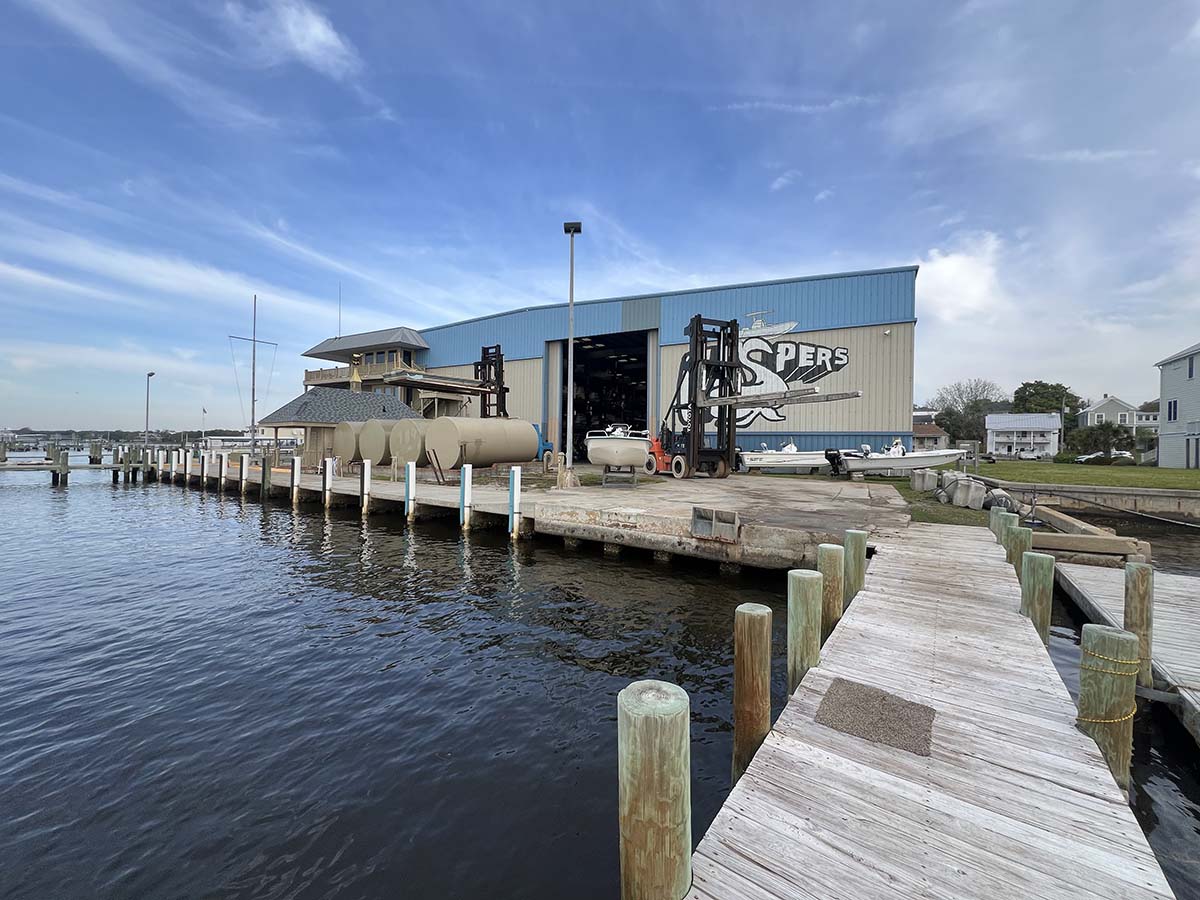
Continuing the Family Business
Published on November 4, 2024When succession planning is a topic of conversation, it often includes warnings that if a plan isn’t in place, disastrous things can happen. Too often, the story of how a business transitions, is a bad one. The story behind Caspers Marina in Swansboro, North Carolina, is one of a family business successfully navigating through the generations.
Caspers Marina opened its doors in 1945 as a small boatyard that mostly catered to larger commercial vessels, like the prevalent shrimping fleets of the area. According to Ward McCormac, owner and manager, his great-great-grandfather was an accomplished woodworker and pulled in business by doing projects like rebuilding transoms. The reputation of the yard grew, and the business continued with subsequent generations moving into management.
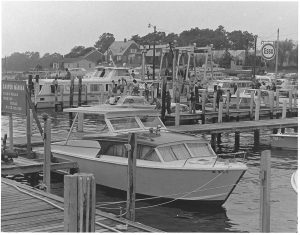
With the Casper family having deep roots in the area, and the times being different, there was no question that the kids would take over the business.
A Long History
McCormac began working at the marina under his grandfather when he was just 12, spending his weekends and summers on the docks or in the office. “I remember stuffing and stamping envelopes to get the bills out,” he said. His grandmother ran the office, handling bookkeeping and other administrative tasks, while his grandfather ran the yard.
In the 1990s, the family built a 160-boat capacity drystack, one of the earliest
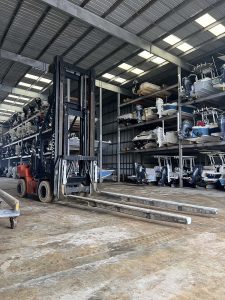
ones of the era. “That changed everything about the operations and facility,” McCormac said. The changeover was complicated by subsequent hurricanes, Bertha and Fran that slammed into the North Carolina coast and damaged the drystack before the family had a chance to pay back the loan. McCormac said it was a hard time for the family, but they persisted.
After Hurricane Florence hit in 2018, McCormac said the family began noticing a change in his grandfather’s health, and he was soon after diagnosed with Alzheimer’s disease and left unable to manage the marina’s day-to-day operations. He was in college at the time and his brother was working in a different field. His mother was teaching, and his aunt wasn’t interested in taking over the marina, so the family considered selling. “I ended up moving back and took over operations with my grandmother who was still working in the office at the time,” McCormac said.
He said with his family name present on so many historic plaques in town and recognizing the roots the Caspers had in the area, he couldn’t let the marina change hands. “I felt like it would be a shame if one day I couldn’t come down and walk around. It didn’t seem right to let it go,” he said.
Planning for the Future
His grandparents had placed the marina in an irrevocable trust for their heirs so the assets and all control of the business would move from them to their beneficiaries and protect the assets from creditors. They took a leap of faith the family would retain the business and McCormac made sure that happened. He and his wife, along with his mother and his aunt, now oversee the business.
While the legal and financial part of transitioning was straightforward, taking over a business that was still operating with ledgers from the 1970s and what had been in the mind of his grandfather, McCormac faced challenges. “I wish I’d focused on stuff my grandfather was doing at the time. He kept maintenance in house, doing so much himself and by the time I needed answers it was past that point where he could help,” he said. “When they finally paid off the drystack it was such a feat that they stalled and didn’t want to change anything else. I’ve been trying to bring us into the 21st century.”
One of his first steps was to let his wife change the bookkeeping to
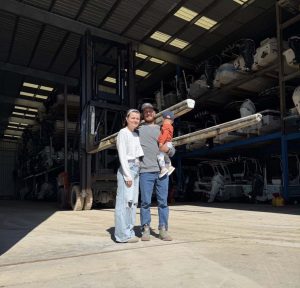
Ward and his wife took over the family business when his grandfather’s health failed. Now Ward is looking at his young son as the future of the marina.
QuickBooks. “I walked into my grandmother’s office and there were ledgers stacked. Every piece of paper she ever had, like receipts, was all in that space. There was no way to track billing. We’d mail invoices and just wait for those payments from people who could owe us $15,000,” McCormac said. His new system makes it much easier to communicate with and bill customers.
After Hurricane Florence in 2018 a new dock was installed, and the old forklift was retired. “My grandfather babied that thing since the early 90s. The level of production with the new 10-ton lift has been insane. It’s a breeze to operate,” McCormac said. Much of the marina’s infrastructure hasn’t been addressed over the past 20 to 30 years so repairs and replacements are underway to allow for future growth like the addition of outside racks.
As much as modernizing has helped, it has also caused some growing pains. “If I increase the volume of boats I can move, I need more staff, and it adds more hours to the machines. I could fill all the slips for sure but there’s much on the backend I’d have to figure out to bring in those additional boats,” he said.
Addressing Challenges
Those growing pains are compounded by the lack of staff. McCormac said his biggest struggle right now is finding help. He had been running the marina with three other full-time employees to drive boats and run the forklift, but he said finding reliable people has become much harder. “I had someone with me for three years who I could count on, and then he just disappeared. We had a new baby and yet I’m spending every day down here because I’m the only one who can drive a forklift,” McCormac said. He has interviewed numerous candidates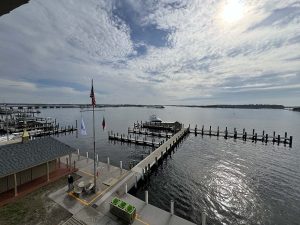 but said they have no familiarity with the industry and are just planning to use a marina job as a stepping stone until they decide what they really want to do.
but said they have no familiarity with the industry and are just planning to use a marina job as a stepping stone until they decide what they really want to do.
He admitted some of the hiring struggles are his own fault. “The hardest thing for me is to trust people when I’m not there. I need to understand my employees know what they’re doing. I still feel like the new forklift was my big purchase and I must watch over it,” McCormac admitted. He hopes he can take the winter slow season to hire some people and get them trained before spring. He also plans to work on allowing himself to trust their capabilities.
When asked what advice he would give to the next generation taking over a family business, he responded, “Trust yourself. I constantly second-guessed myself, and you have to know you make mistakes. It’s all a good learning experience. I always compared myself to my grandfather, who seemed perfect, but he went from a woodshop teacher to running a marina after his father died in a car accident. He made mistakes. You just have to move forward.”
| Categories | |
| Tags |






